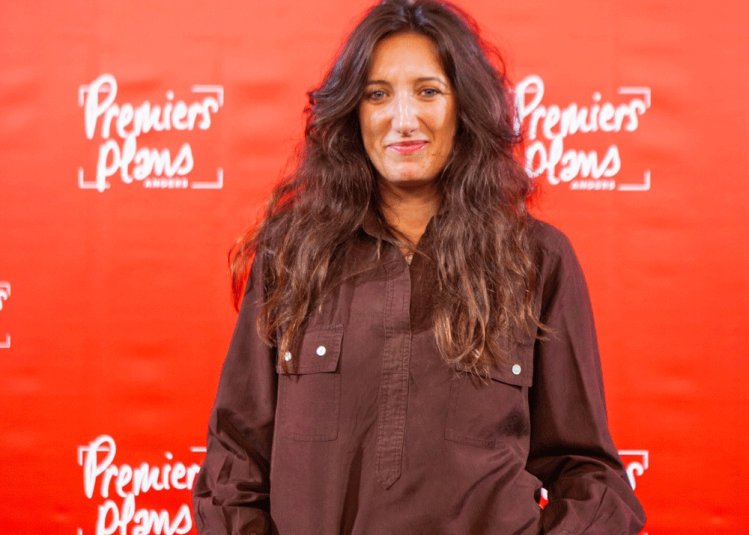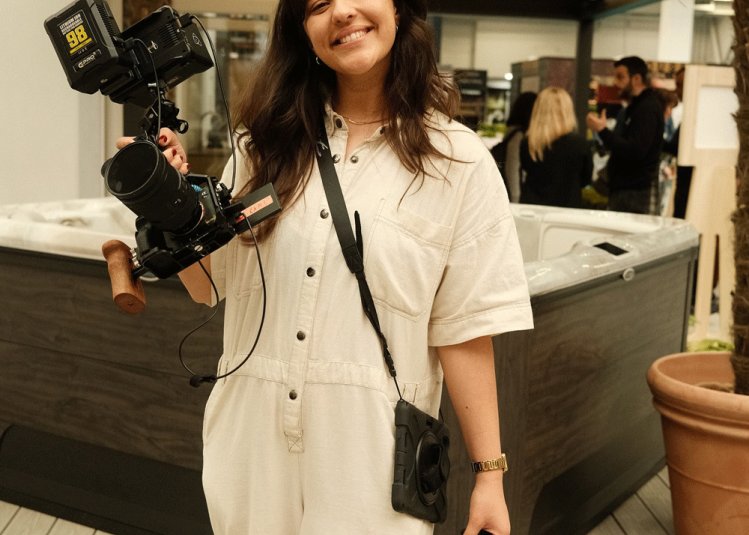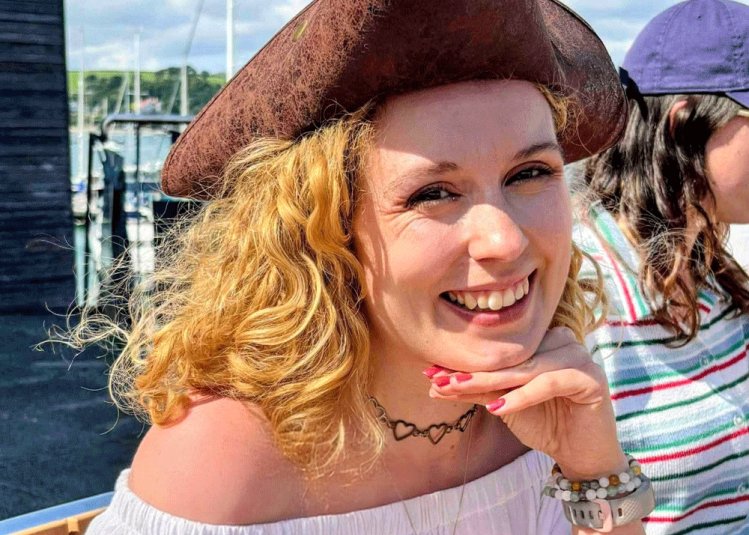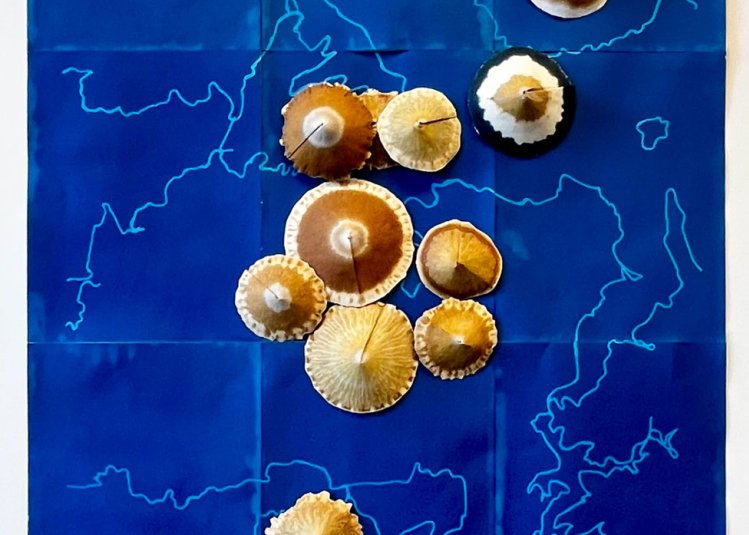Natural Innovation: the Falmouth designer reimagining textiles with biomaterials
11 July 2025
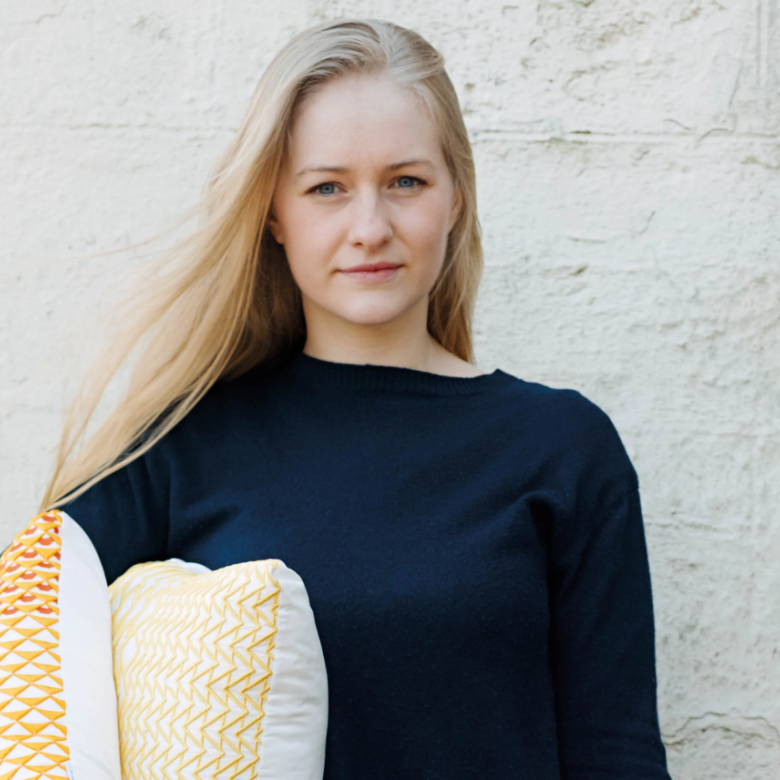
Alice Selwood is a multitalented creative. After graduating from Falmouth’s Textile Design BA in 2015, she established an eponymous textile brand and has achieved great success – from collaborating with the likes of Harrods and The National Portrait Gallery to her designs featuring in Vogue.
Alongside her textiles business, Alice supports the next generation of fashion and textiles students through her role as Senior Technician at Falmouth, specialising in digital embroidery and hand embellishment. She has also recently completed an online MA in Sustainable Fashion, during which she has started to research the use of biomaterials within fashion design.
We chatted to her about her master’s research, her technician role and her ambitions for using biomaterials in future designs.
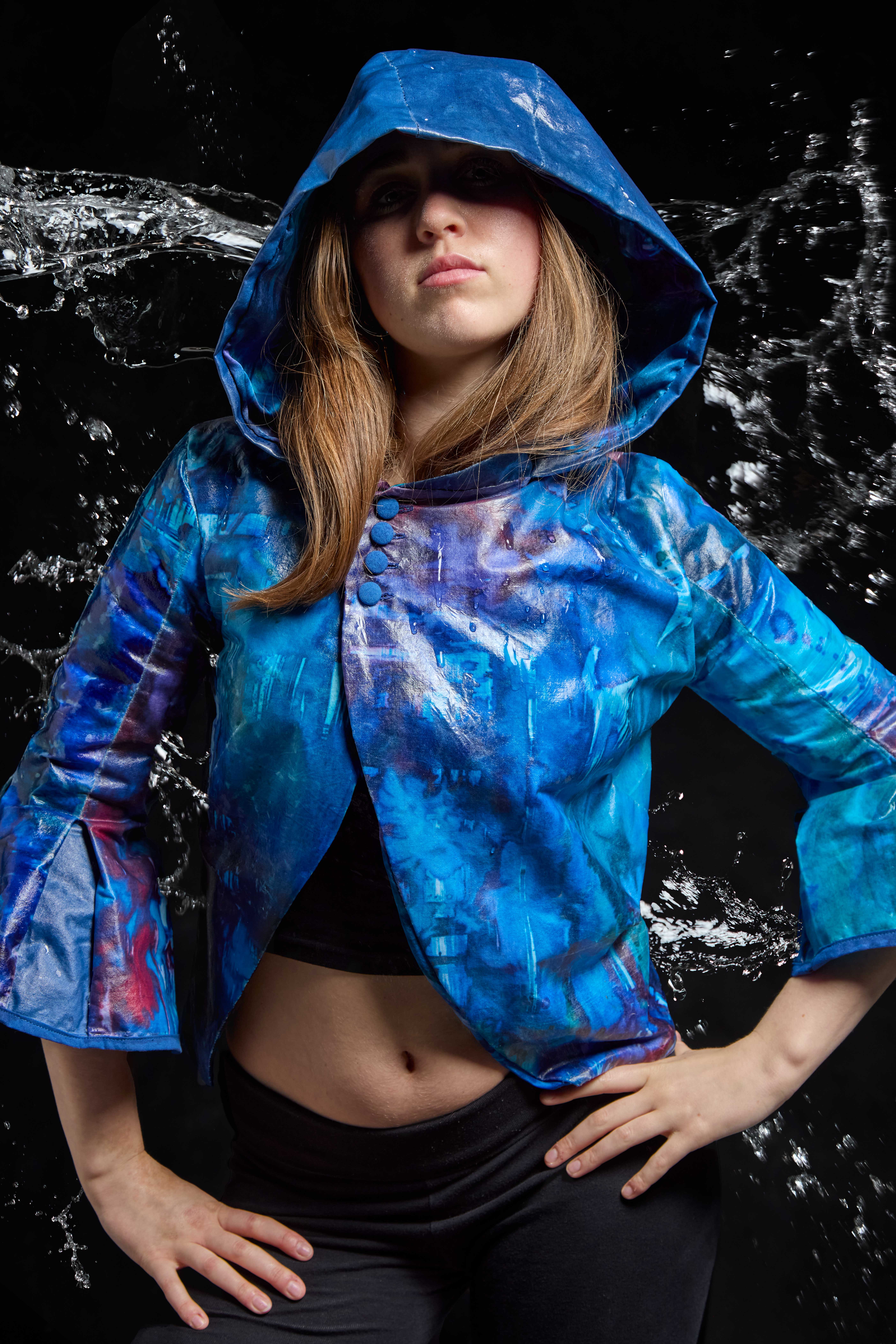
How did your time on Sustainable Fashion MA (Online) transform your creative practice?
The Sustainable Fashion MA is a research-based degree, so whilst my creative practice hasn’t changed, I now have a greater appreciation for the manufacturing process of textiles and fashion. The key to sustainable production is traceability; understanding where your fabric and fashion comes from - all the way back to the farmer that grew the cotton - is just as important as the maker who sews on the buttons, and the sales tactics used to sell the garment.
As a consumer it is not always easy to know where to buy sustainably due to the lack of traceability in the industry, so it is the responsibility of the designer to make the correct sourcing choices and make sustainable products readily available.
Why did you decide to take on the master's?
Textile production has a huge negative impact on world health, to name a few issues; the excessive use of fossil fuels, chemical waste being dumped into water systems and over production all contribute to an overwhelming problem. I do run a business, and whilst small, I wanted to develop my sustainable practice further to reduce my impact and discover better systems so that my work contributes to the environment, instead of destroying or adding to the problem.
Can you tell us more about your Final Major Project exploring seaweed natural polymer for waterproofing outdoor clothing?
My postgraduate research explored the uses of biomaterials suitable for waterproofing outdoor apparel. Seaweed is renewable and biodegradable and is also known as nature’s binding agent because of its molecular structure. Flexible water-repellent tissues can be created when a polysaccharide carbohydrate, formed by long repeating chains of hydroxyl groups, is combined with additive components. This makes seaweed an excellent material to create a natural polymer, more commonly called a bioplastic.
What inspires your work as a textile designer and technician?
As a textile designer I specialise in creating elegantly detailed embroidery and embellishment for luxury fashion and interiors. I am inspired by nature in all things and fascinated by strong organic and structural forms. Developing bold and bright colour palettes from natural dyes has been an important growth factor for my business, marrying up my practice along with my research.
Teaching at Falmouth is a more recent development in my career. Having resisted teaching for a long time, it came as a surprise to find so much joy in seeing students take a small taught technique and transform it into a whole new outcome, and working alongside enthusiastic students who are uncorrupted by the industry is so exciting. It is so encouraging to see young designers developing sustainable practices and producing the next ‘eco’ product. This has been a great source of inspiration within my own research and practice.
What are your ambitions for the future, with the master’s now under your belt?
I would like to continue my research into using biomaterials for fashion, developing the process to be capable of larger-scale manufacturing for wider accessibility whilst also maintaining the ethos of not overproducing and reducing the use of fossil fuels within the fashion industry.
